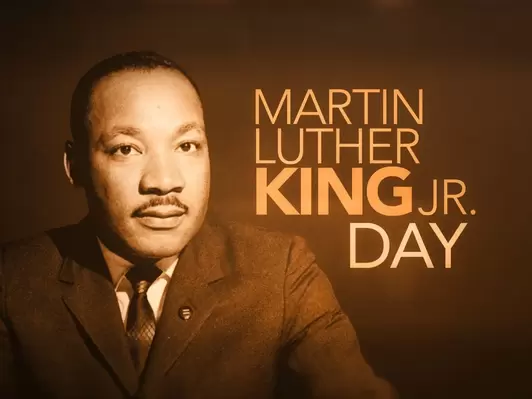Kings Greatness Peaceful Protest
By James Donahue
This is JLK Day, a time set aside to honor the late peace activist Dr. Martin Luther King Jr. for his accomplishments in leading a civil rights movement in the United States. King is best remembered for his “I Have a Dream” speech that highlighted a 1963 March on Washington and his organized nonviolent protests in Birmingham, Alabama.
King received notoriety when he organized and lead the protest marches from Selma to Montgomery. His work came to an abrupt end on April 4, 1968 when he was assassinated in Memphis, Tennessee. James Earl Ray was charged with the killing although some believe Ray was framed.
In spite of his popularity today, King was not considered a national hero during his lifetime. He was under investigation by the FBI for possible communist ties and was investigated for various extramarital affairs.
That he was murdered at the height of his career helped escalate King to the status of a national hero. And he may well deserve that title.
That is because King, a Baptist minister, preached and taught passivism as a way to lead his campaign for black equality. Thus he falls into the category of greatness shared by such political activists as Mahatma Gandhi and Nelson Mandela. Their work was always done in love and respect for all of humanity. They all achieved success without a shot being fired, in spite of severe opposition by high government officialdom.
We are watching a world in turmoil today as the masses gather in the streets all around the world to protest greedy power figures how controlling the destiny of nations, big corporations and the monetary system without respecting the environment and the growing number of starving homeless.
In protest, the streets are now filled with violence. Guns and bombs are leaving the streets flowing with blood. When protests succeed in bringing about change, it seems that the change is not an improvement. Things just appear to be getting worst.
Perhaps following the examples set by great leaders like King, Gandhi and Mandela would lead the world toward a much more peaceful solution. There needs to be protest. But it must be done with love and respect, and not with bombs and bullets.
Those kinds of protests usually take longer to bring results. But when change occurs, the people have a better chance of winning something worth having.
By James Donahue
This is JLK Day, a time set aside to honor the late peace activist Dr. Martin Luther King Jr. for his accomplishments in leading a civil rights movement in the United States. King is best remembered for his “I Have a Dream” speech that highlighted a 1963 March on Washington and his organized nonviolent protests in Birmingham, Alabama.
King received notoriety when he organized and lead the protest marches from Selma to Montgomery. His work came to an abrupt end on April 4, 1968 when he was assassinated in Memphis, Tennessee. James Earl Ray was charged with the killing although some believe Ray was framed.
In spite of his popularity today, King was not considered a national hero during his lifetime. He was under investigation by the FBI for possible communist ties and was investigated for various extramarital affairs.
That he was murdered at the height of his career helped escalate King to the status of a national hero. And he may well deserve that title.
That is because King, a Baptist minister, preached and taught passivism as a way to lead his campaign for black equality. Thus he falls into the category of greatness shared by such political activists as Mahatma Gandhi and Nelson Mandela. Their work was always done in love and respect for all of humanity. They all achieved success without a shot being fired, in spite of severe opposition by high government officialdom.
We are watching a world in turmoil today as the masses gather in the streets all around the world to protest greedy power figures how controlling the destiny of nations, big corporations and the monetary system without respecting the environment and the growing number of starving homeless.
In protest, the streets are now filled with violence. Guns and bombs are leaving the streets flowing with blood. When protests succeed in bringing about change, it seems that the change is not an improvement. Things just appear to be getting worst.
Perhaps following the examples set by great leaders like King, Gandhi and Mandela would lead the world toward a much more peaceful solution. There needs to be protest. But it must be done with love and respect, and not with bombs and bullets.
Those kinds of protests usually take longer to bring results. But when change occurs, the people have a better chance of winning something worth having.
